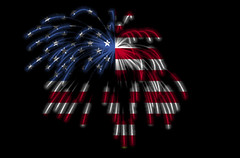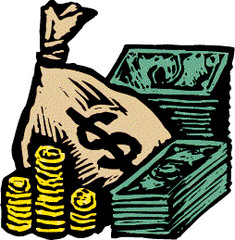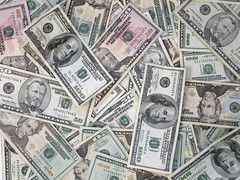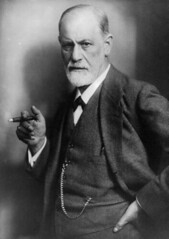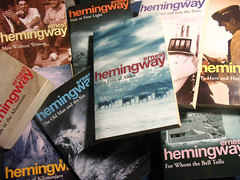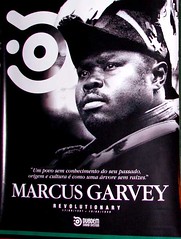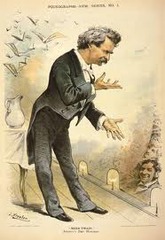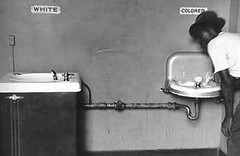| 6724449981 | Antinomianism | an interpretation of puritan beliefs that stressed God's gift of salvation and minimized what an individual could do to gain salvation; identified with Anne Hutchinson | | 0 |
| 6724454413 | Enumerated Articles | Under the English navigation Acts, those commodities that could be shipped only to
England or other English colonies; originally included sugar, tobacco, cotton, and indigo | | 1 |
| 6724455503 | Great Migration | Settlement of over twenty thousand Puritans in Massachusetts Bay and other parts of New
England between 1630 and 1642. | | 2 |
| 6724456306 | Half-way covenant | In 1662, Puritans permitted the baptized children of church members into a "half-way"
membership in the congregation and allowed them to baptize their children; they still could
not vote or take communion | | 3 |
| 6724457183 | Headright System | Method of attracting settlers to Virginia; after 1618, it gave fifty acres of land to anyone
who paid for their own passage or for that of any other settlers who might be sent or brought
to the colony. | | 4 |
| 6724458598 | Proprietary Colony | A colony founded as a grant of land by the king to an individual or group of individuals;
Maryland (1634) and Carolina (1663) were proprietary colonies, as was Pennsylvania
(1681). | | 5 |
| 6724459492 | Triangular Trade | Trade pattern that developed in the colonies; New England shipped rum to the west coast of
Africa in exchange for slaves that were sent to the West Indies for molasses that was sold in
New England. | | 6 |
| 6724462209 | Sugar Act (1764) | expanded the list of enumerated articles; stricter enforcement of trade regulations | | 7 |
| 6724463336 | Currency Act (1764) | colonies prohibited from issuing paper money | | 8 |
| 6724465190 | Townshend Acts (1767) | external taxes on colonial imports. Led to non-importation agreements, Letters of a Farmer in
Pennsylvania | | 9 |
| 6724469026 | Coercive Acts (1774) | British response to the Boston Tea Party, intended to punish Boston. Led to First Continental Congress | | 10 |
| 6724479069 | Committees of Correspondence | First established in Boston in 1772, the committees became a way for the colonies to state and
communicate their grievances against Great Britain. | | 11 |
| 6724480701 | Critical Period | Term used by historians to describe the United States under the Articles of Confederation | | 12 |
| 6724483426 | Enlightenment | A European intellectual movement that stressed the use of human reason. | | 13 |
| 6724484709 | Natural Rights | Those rights that the Enlightenment (and Jefferson's Declaration) saw as inherent for all humans and that government is not justified in violating. | | 14 |
| 6724486801 | Non-importation agreements | A form of protest against British policies; colonial merchants refused to import British goods. | | 15 |
| 6724488742 | Virtual representation | The British argument that the American colonies were represented in Parliament, since the members of Parliament represented all Englishmen in the empire. | | 16 |
| 6724489615 | Whig ideology | Idea that concentrated power leads to corruption and tyranny; emphasis on balanced government
where legislatures check the power of the executive. | | 17 |
| 6724490963 | Writs of Assistance | General search warrants employed by Britain in an effort to prevent smuggling in the American colonies | | 18 |
| 6724491793 | Article 1 | Legislative Branch | | 19 |
| 6724493062 | Article 2 | Executive Branch | | 20 |
| 6724493064 | Article 3 | Judicial Branch | | 21 |
| 6724494265 | Article 4 | Relations with States | | 22 |
| 6724494266 | Article 5 | Amendment Process | | 23 |
| 6724495214 | Article 6 | Supremacy Clause | | 24 |
| 6724496373 | Article 7 | Ratification | | 25 |
| 6724498126 | 3rd Amendment (1791) | Limit on quartering of troops. | | 26 |
| 6724498127 | 4th Amendment (1791) | Protection against unreasonable search and seizure | | 27 |
| 6724499213 | 5th Amendment (1791) | Due process; double jeopardy; self incrimination | | 28 |
| 6724499214 | 6th Amendment (1791) | Right to speedy trial | | 29 |
| 6724499215 | 7th Amendment (1791) | Trial by jury in civil cases | | 30 |
| 6724500373 | 8th Amendment (1791) | No excessive bail or fine; no cruel or unusual punishment | | 31 |
| 6724500374 | 9th Amendment (1791) | People retain rights | | 32 |
| 6724500384 | 10th Amendment (1791) | Powers not delegated to federal govt are reserved for states/people | | 33 |
| 6724509627 | 11th Amendment (1798) | States can't be sued by individuals | | 34 |
| 6724510690 | 12th Amendment (1804) | Electoral College | | 35 |
| 6724510697 | 13th Amendment (1865) | Abolition of slavery | | 36 |
| 6724512781 | 14th Amendment (1868) | Equal protection under the law, post-Civil War definition of citizenship | | 37 |
| 6724516056 | 15th Amendment (1870) | Right to vote guaranteed to all races | | 38 |
| 6724518666 | 16th Amendment (1913) | Income Tax | | 39 |
| 6724518667 | 17th Amendment (1913) | Direct election of senators | | 40 |
| 6724522109 | 20th Amendment (1933) | Change in when president/congress take office | | 41 |
| 6724523091 | 21st Amendment (1933) | Repeal of prohibition | | 42 |
| 6724523092 | 22nd Amendment (1951) | 2 term limit for president | | 43 |
| 6724524989 | 23rd Amendment (1961) | Voting for president in DC | | 44 |
| 6724542871 | 24th Amendment (1964) | Abolition of poll tax | | 45 |
| 6724544154 | 25th Amendment (1967) | Presidential Succession | | 46 |
| 6724545426 | 26th Amendment (1971) | Voting Age to 18 | | 47 |
| 6724546887 | 27th Amendment (1992) | Election must pass in between when a bill about Congressmen pay is passed and goes into effect | | 48 |
| 6724562507 | Compact Theory | The idea advanced by Rousseau, Locke, and Jefferson, that government is created by voluntary
agreement among the people involved and that revolution is justified if government breaks the
compact by exceeding its authority. | | 49 |
| 6724563776 | Enumerated Powers | Powers specifically given to Congress in the Constitution; including the power to collect taxes,
coin money, regulate foreign and interstate commerce, and declare war. | | 50 |
| 6724566012 | Impressment | British practice of taking American sailors from American ships and forcing them into the
British navy; a factor in the War of 1812. | | 51 |
| 6724567208 | Fletcher v. Peck (1810) | First time a state law is declared unconstitutional; contract clause of the Constitution overrode state law. | | 52 |
| 6724569529 | Dartmouth College v. Woodward (1819) | The charter of a private corporation is protected under the Constitution. | | 53 |
| 6724570900 | McCulloch v. Maryland (1819) | Upheld constitutionality of the Bank of the United States; example of loose construction of the Constitution (favored by the Federalists). | | 54 |
| 6724573498 | Gibbons v. Ogden (1824) | Affirmed federal control of interstate commerce under commerce clause of the Constitution. | | 55 |
| 6724612631 | American System | Economic program advanced by Henry Clay that included support for a national bank, high
tariffs, and internal improvements; emphasized strong role for federal government in the
economy. | | 56 |
| 6724614117 | Corrupt Bargain | Refers to the claim from the supporters of Andrew Jackson that John Quincy Adams and Henry
Clay had worked out a deal to ensure that Adams was elected President by the House of
Representatives in 1824. | | 57 |
| 6724614988 | Era of Good Feelings | Refers to the period after the War of 1812 during the presidency of James Monroe, when
competition among political parties was at a low ebb. | | 58 |
| 6724617403 | Kitchen Cabinet | Informal group of friends who advised Jackson during his administration. Jackson believed that
the "official" Cabinet's main function was to carry out his orders. | | 59 |
| 6724618942 | Pet Banks | A term used by Jackson's opponents to describe the state banks that the federal government used
for new revenue deposits in an attempt to destroy the Second Bank of the United States; the
practice continued after the charter for the Second Bank expired in 1836. | | 60 |
| 6724632214 | Freeport Doctrine | The position on slavery taken by Stephen Douglas during the debates with Lincoln in 1858.
Slavery could not exist if local legislation did not accept it. Douglas refused to say
whether he believed slavery was right or wrong. | | 61 |
| 6724634075 | Kansas-Nebraska Act (1854) | Created two new territories with slavery decided by popular sovereignty; it effectively
repealed the Missouri Compromise as it applied to slavery north of the Compromise line. | | 62 |
| 6724635130 | Romanticism | An intellectual movement that stressed emotion, sentiment, and individualism. A reaction
to rationalism and the classical revival. | | 63 |
| 6724636761 | Transcendentalism | American expression of the Romantic movement that emphasized the limits of reason,
individual freedom, and nature; best represented by Ralph Waldo Emerson and Henry
David Thoreau, the author of Walden and Civil Disobedience. | | 64 |
| 6724641220 | "Fifty-four forty or fight" | Political slogan of the Democrats in the election of 1844, which claimed fifty-four degrees,
forty minutes as the boundary of the Oregon territory claimed by the United States. The
Treaty of 1846 with Great Britain set the boundary at the forty-ninth parallel. | | 65 |
| 6724880187 | Carpetbaggers | Derogatory term for Northern Republicans who were involved in Southern politics during
Radical Reconstruction. | | 66 |
| 6724881946 | Compromise of 1877 | Rutherford B. Hayes and other Republicans agreed that U. S. Troops would be withdrawn from
the South, agreed to appoint a Southerner to the Cabinet, and pledged federal projects to the
South in return for an end to Democratic opposition to official counting of the electoral votes for the disputed election of 1876. | | 67 |
| 6724883847 | Copperheads | Northern Democrats, also known as Peace Democrats, who opposed Lincoln's war policies and were concerned with the growth of presidential power. In the election of 1864, General GeorgeMcClellan was nominated by the Democrats with their support | | 68 |
| 6724885790 | Draft Riots | Mob violence opposing conscription laws during the Civil War; the most violent occurred in
New York City (July 1863). | | 69 |
| 6724895930 | Ex Parte Milligan (1866) | Supreme Court decision involving presidential war powers; civilians could not be tried in military courts in wartime when the federal courts were functioning | | 70 |
| 6724899006 | Ironclads | Wooden ships with metal armor that were employed by both sides during the Civil War | | 71 |
| 6724900397 | Scalawags | Term used to describe Southern white Republicans who had opposed secession | | 72 |
| 6724953353 | Atlanta Compromise | Argument put forward by Booker T. Washington that African-Americans should not focus on
civil rights or social equality but concentrate on economic self-improvement. | | 73 |
| 6724955100 | Agrarian Malaise | Discontent among farmers, resulting from changes in their economic position after the Civil
War. They sought help from states and the federal government, thus abandoning the doctrine of
laissez-faire. | | 74 |
| 6724956591 | Closed Shop | A factory or place of business that employs only union members. | | 75 |
| 6724956592 | Craft Unions | Labor organizations whose members were skilled workers in a particular craft—for example,
carpenters, masons, or cigar makers. The American Federation of Labor was composed of
individual craft unions. | | 76 |
| 6724959920 | Dawes Act (1887) | Changed the reservation system by granting 160 acres and U. S. Citizenship to native American
heads of families who agreed to give up their tribal allegiance. | | 77 |
| 6724962600 | Long vs. Short Haul | The railroad practice to charge higher rates on lines where there was no competition than on
routes where several lines were operating. This often meant that the cost of shipping goods a
short distance was greater than over a long distance. | | 78 |
| 6724964170 | Mugwumps | Reform Republicans who refused to support James Blaine, the party's candidate in the election
of 1884 | | 79 |
| 6724964171 | Social Gospel | Religious response to the problems created by industrialization and urbanization in the late
nineteenth century; supporters of the Social Gospel supported child labor laws, civil service
reform, and control of the trusts | | 80 |
| 6724964434 | Stalwarts | Faction in the Republican party that emerged by 1880; led by Senator Roscoe Conkling, supported the spoils system | | 81 |
| 6724974248 | Half-Breeds | claimed to represent the idea of civil service reform | | 82 |
| 6724966670 | Turner Thesis | The historian Frederick Jackson Turner argued that the frontier was the key factor in the
development of American democracy and institutions; he maintained that the frontier served as a "safety valve" during periods of economic crisis. | | 83 |
| 6724966671 | Crime of '73 | Through the Coinage Act of 1873, the United States ended the minting of silver dollars and
placed the country on the gold standard. This was attacked by those who supported an
inflationary monetary policy, particularly farmers, and believed in the unlimited coinage of
silver. | | 84 |
| 6724968297 | "Rum, Romanism, and Rebellion" | An insult made against New York Irish-Americans by a Republican clergyman in the 1884
election; Republican candidate James Blaine's failure to repudiate this statement lost him New
York and contributed to his defeat by Grover Cleveland. | | 85 |
| 6725031565 | Dollar Diplomacy | President Taft's policy of promoting U. S. Interests overseas by encouraging American business
to invest in foreign countries, particularly in the Caribbean and Central America. | | 86 |
| 6725034088 | Insular Cases | The Supreme Court cases (1901-1903) that dealt with the constitutional rights in the newly
acquired overseas territories. The Court ruled that the Constitution did not necessarily follow
the flag, and therefore Congress was to determine how to administer the territories. | | 87 |
| 6725034089 | Irreconcilables | Senators opposed to ratification of the Treaty of Versailles on any grounds; lead by isolationists
William Borah, Hiram Johnson, and Robert La Follette. | | 88 |
| 6725034090 | Muckrackers | A group of investigative reporters who pointed out the abuses of big business and the corruption
of urban politics; included Frank Norris (The Octopus), Ida Tarbell (A History of the Standard
Oil Company), Lincoln Steffens (The Shame of the Cities), and Upton Sinclair (The Jungle). | | 89 |
| 6725034091 | New Nationalism | Program that Theodore Roosevelt ran on in the election of 1912; large corporations had to be
controlled and regulated by a strong President and the federal government that would protect the
rights of women, labor, and children. | | 90 |
| 6725035705 | New Freedom | Woodrow Wilson's program put forward during the election of 1912; business competition
could be restored by breaking up the trusts, but Wilson did not believe in having the federal
government control the economy | | 91 |
| 6725035706 | Referendum, Recall, Direct Primary | Ways in which the Progressives hoped to bring about direct democracy; referendum gives the
voters the right to accept or reject a piece of legislation; recall is a mechanism for removing an
officeholder before the end of his or her term; direct primary allows the voters rather than the
political bosses to nominate a party's candidate for office | | 92 |
| 6725037333 | Reservationists | Members of the Senate who were ready to ratify the Treaty of Versailles with modifications; the
group is often divided into the "mild" Reservationists, who wanted only minor changes, and the "strong" Reservationists, who favored the significant changes advocated by Henry Cabot Lodge. | | 93 |
| 6725037334 | Sacco and Vanzetti | Refers to the trial of two Italian immigrants—Nicola Sacco and Bartolomeo Vanzetti, both
confessed anarchists, for murder in 1920. Both men were found guilty and died in the electric
chair in 1923, though their trial was a showcase for American bigotry and the evidence was
scarce and improperly used. | | 94 |
| 6725039499 | The New Manifest Destiny | The late-nineteenth-century believed that it was the destiny of the United States to expand
beyond its continental borders. | | 95 |
| 6725039500 | Yellow Journalism | Refers to the treatment of the Cuban Revolution that exaggerated the Spanish atrocities; the
sensational stories in William Randolph Hearst's New York Journal and Joseph Pulitzer's New
York World were a factor in the U. S. Declaration of war again Spain in 1898. | | 96 |
| 6725086132 | 100 Days | Period from March to June 1933 when Congress passed major legislation submitted by
Roosevelt to deal with the Depression. | | 97 |
| 6725086133 | Bonus Army | Unemployed World War 1 veterans who came to Washington in the spring of 1932 to demand
the immediate payment of the bonus congress had voted them in 1922. The veterans were
forcibly removed from Anacostia Flats by federal troops under the command of Douglas
MacArthur | | 98 |
| 6725089693 | Court Packing Proposal | In the wake of Supreme Court decisions that declared key pieces of New Deal legislation
unconstitutional, Roosevelt proposed increasing the number of justices. If a justice did not retire
at age seventy, the President could appoint an additional justice up to a maximum of six. | | 99 |
| 6725089694 | Hoovervilles | Shanty towns that the unemployed built in the cities during the early years of the Depression; the
name given to them shows that the people blamed Hoover directly for the Depression. | | 100 |
| 6725091366 | Lost Generation | Term coined by Gertrude Stein to describe American expatriate writers of the 1920s; include T.
S. Eliot, F. Scott Fitzgerald, Ernest Hemingway, and Stein herself. | | 101 |
| 6725091367 | Sick Chicken Case | In Schechter Poultry v. U. S., the Supreme court struck down the National Industrial Recovery
Act as unconstitutional. The decision encouraged Roosevelt to consider ways to change the
makeup of the court. | | 102 |
| 6725091368 | Subsidy | Monetary assistance by a government to a person, group, or commercial enterprise. | | 103 |
| 6725091382 | Welfare State | A social system whereby the state assumes primary responsibility for the economic and social
well-being of its citizens. | | 104 |
| 6725092912 | Return to Normalcy | Campaign theme of Warren Harding during the election of 1920; it reflected the conservative
mood of the country after the constant appeals to idealism that characterized both the
Progressive Era and Wilson's fight over the League of Nations. | | 105 |
| 6725092913 | Share the Wealth | Program of Huey Long that proposed the redistribution of income of the rich to give every
American a guaranteed annual income of $2,000 to $3,000, old-age pensions, money for a
college education, and veterans benefits | | 106 |
| 6725126448 | Bracero Program | Wartime agreement between the United States and Mexico to import farm workers to meet a
perceived manpower shortage; the agreement was in effect from 1941 to 1947. | | 107 |
| 6725127922 | Cash and Carry | Key provisions of the Neutrality act of 1939 that allowed the United States to sell arms and other
contraband as long as nations paid cash and shipped the goods on their own vessels | | 108 |
| 6725127923 | Europe First | Military strategy adopted by the United States that required concentrating on the defeat of
Germany while maintaining a holding action against Japan in the Pacific. | | 109 |
| 6725129828 | Merchants of Death | Term used by Senator Gerald P. Nye to describe the munitions-makers whom he blamed for
forcing the United States into World War 1. Nye headed a committee that investigated the
industry from 1934 to 1936. | | 110 |
| 6725129829 | Second Front | British and American invasion of France to relieve pressure on the Soviet Union in the east;
Stalin had insisted on opening the second front from June 1941, but the invasion of Normandy
(Operation Overlord) did not take place until June 1944. | | 111 |
| 6725131342 | Sphere of Influence | An area in which a nation seeks to be dominant by securing preferential treatment of a political,
economic, and/or social nature. | | 112 |
| 6725134704 | Victory Gardens | Plots of land set aside by Americans during World War 1 and 2 for the cultivation of
vegetables so as to limit the purchase of produce in stores. | | 113 |
| 6725161567 | Brinkmanship | The policy associated with Secretary of State John Foster Dulles that stressed that Soviet
aggression would be met by massive nuclear retaliation; Dulles was opposed to simply
"containing" the USSR and wanted to liberate the countries under Soviet control. | | 114 |
| 6725162924 | Detente | Policy toward the USSR developed by President Nixon and Henry Kissinger focused on easing
tensions through negotiations, particularly on arms reductions—for example, the first Strategic
Arms Limitation Treaty (SALT) in 1972. | | 115 |
| 6725162925 | Eisenhower Doctrine | The United States was prepared to use force in the Middle East against aggression from any
country controlled by the Soviet Union (1957). | | 116 |
| 6725164663 | Military Industrial Complex | In his farewell address in 1961, Eisenhower warned of the danger posed by a strong defense
industry and the armed forces; despite his own background, Eisenhower wanted to control
military spending. | | 117 |
| 6725164664 | Shuttle Diplomacy | Henry Kissinger's diplomatic efforts in the Middle East in early 1974 led to the withdrawal of
Israeli troops from the west bank of the Suez Canal and disengagement between Israel and Syria
on the Golan Heights. | | 118 |
| 6725164665 | Summit Diplomacy | Meetings between world leaders, usually the United States and the Soviet Union, to discuss
bilateral issues and matters of mutual concern—for example, nuclear disarmament; the first
summit conference took place in 1944 in Geneva. | | 119 |
| 6725167107 | Truman Doctrine | In response to the Greek Civil War in 1947, the United States provided economic and military
aid to both Greece and Turkey. The United States would support "free peoples" against armed
minorities or outside pressure. | | 120 |
| 6725167108 | Vietnamization | President Nixon's policy of withdrawing troops from Vietnam and turning the fighting over to
the South Vietnamese with massive amounts of American supplies. | | 121 |
| 6725203390 | Dixiecrats | Southern Democrats who bolted the party following the adoption of a civil rights plank at the
1948 convention; ran Strom Thurmond as their candidate in 1948 as the States' Rights party. | | 122 |
| 6725205029 | Fair Deal | President Truman's domestic policy (1948) that included civil rights and an extension and
enlargement of the New Deal—health insurance, federal aid to education, public housing, and
repeal of the Taft-Hartley Act. | | 123 |
| 6725206825 | Great Society | President Johnson's domestic program that included Medicare, civil rights legislation, the War
on Poverty; funding for the programs suffered because of the costs of the Vietnam War | | 124 |
| 6725206826 | Modern Republicanism | Represented by President Eisenhower, it combined acceptance of the basic features of the New
Deal with a conservative economic policy, particularly controlling government spending. | | 125 |
| 6725208698 | New Federalism | President Nixon's program to return power and tax dollars to the states and cities; the key aspect
was revenue sharing, which distributed $30 billion in revenues to the states. | | 126 |
| 6725208699 | Stagflation | High inflation combined with high unemployment and a declining gross national product; used
to describe economic condition of the country in the mid-1970s. | | 127 |
| 6725210416 | Supply-side economics | President Reagan's economic policy; reduction in taxes would give people more spendable
income and in turn lead to business expansion and more jobs. The policy did increase the
federal deficit. | | 128 |
| 6725210417 | Warren Court | Under Chief Justice Earl Warren (1953-1969), an activist Supreme Court became an important
instrument of social and political change, particularly in the areas of civil rights and civil
liberties. | | 129 |







